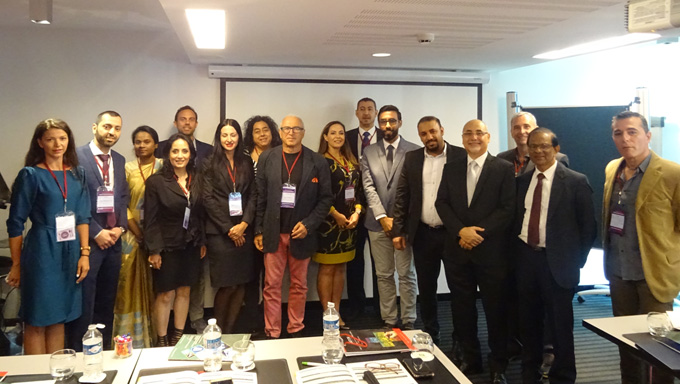
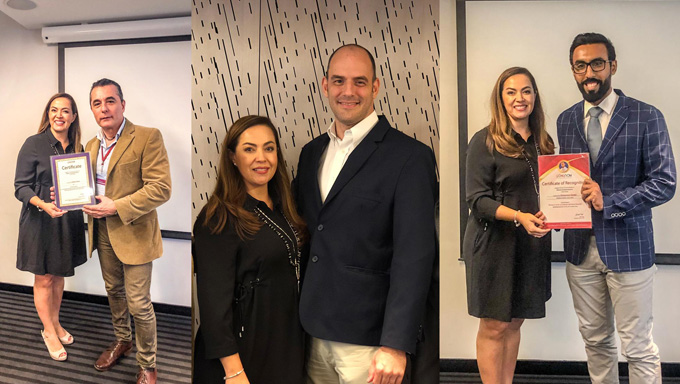
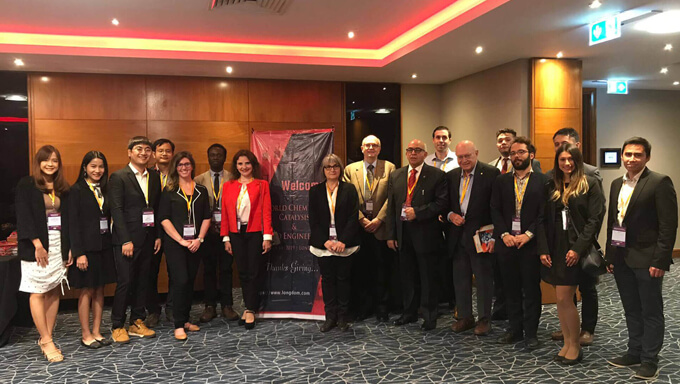
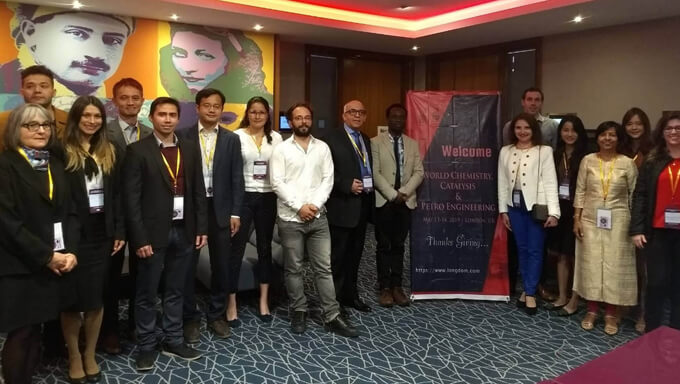
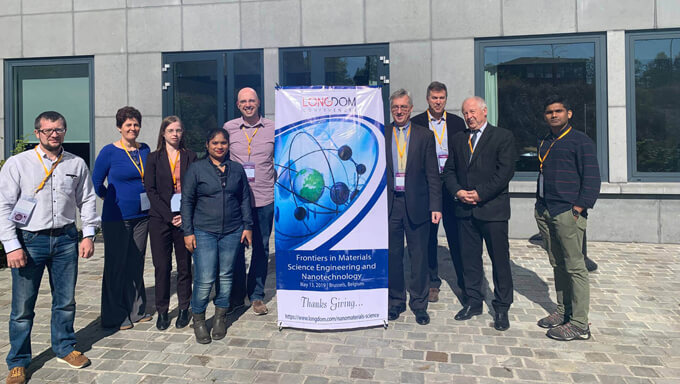
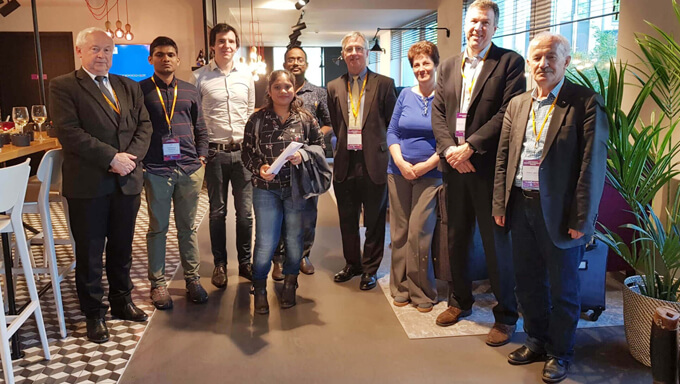
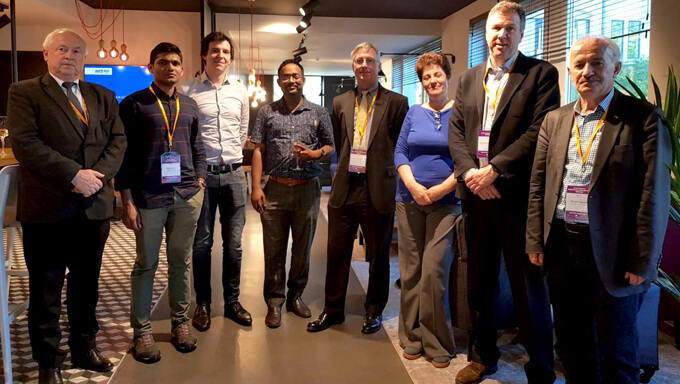
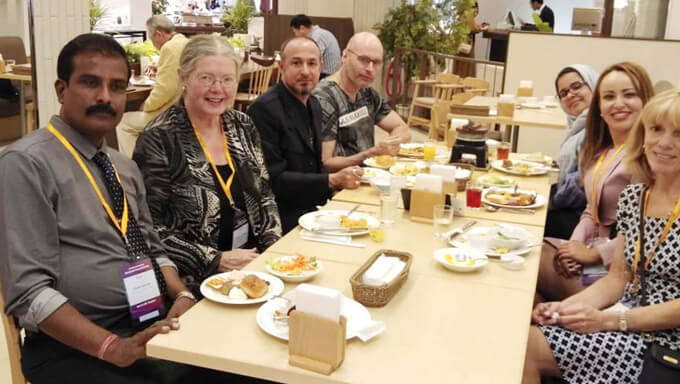
Pharmaceutical chemistry involves in Drug Discovery and Design, deals with the design and synthesis of new drug molecules. This category includes specialized fields of study such as medicinal chemistry, combinatorial chemistry, structural biology, identification of biological targets, and assay development to test drug candidates.
Drug Analysis involves separating, identifying, and quantifying the components of a sample. Analytical chemistry is an important component of all areas of the pharmaceutical sciences.
Nanotechnology is manipulation of matter on an atomic, molecular, and supramolecular scale. The earliest, widespread description of nanotechnology referred to the particular technological goal of precisely manipulating atoms and molecules for fabrication of macroscale products, also now referred to as molecular nanotechnology. A more generalized description of nanotechnology was subsequently established by the National Nanotechnology Initiative, which defines nanotechnology as the manipulation of matter with at least one dimension sized from 1 to 100 nanometers. This definition reflects the fact that quantum mechanical effects are important at this quantum-realm scale, and so the definition shifted from a particular technological goal to a research category inclusive of all types of research and technologies that deal with the special properties of matter which occur below the given size threshold. It is therefore common to see the plural form "nanotechnologies" as well as "nanoscale technologies" to refer to the broad range of research and applications whose common trait is size.
Pharmaceutics is the discipline of pharmacy that deals with all facets of the process of turning a new chemical entity (NCE) into a medication able to be safely and effectively used by patients in the community. Pharmaceutics is the science of dosage form design. There are many chemicals with known pharmacological properties, but a raw chemical is of no use to a patient. Pharmaceutics deals with the formulation of a pure drug substance into a dosage form. Branches of pharmaceutics include: Pharmacokinetics, Pharmacodynamics, Pharmacoepidemiology, Pharmacogenomics, Pharmacovigilance, Pharmaceutical formulation and Pharmaceutical technology.
The most fundamental goal in drug design is to predict whether a given molecule will bind to a target and if so how strongly. Molecular mechanics or molecular dynamics are most often used to predict the conformation of the small molecule and to model conformational changes in the biological target that may occur when the small molecule binds to it. The therapeutic response of a drug depends upon the interaction of drug molecules with a cell on cell membrane related biological events at receptor sites in a concentration-dependent manner. Selective and effective localization of the pharmacologically active moiety at pre-identified target(s) in therapeutic concentration, while restricting its access to non-target(s) normal cellular linings, thus minimizing toxic effects and maximizing the therapeutic index accounts from effective and efficient drug delivery.
Pharmacology is the science of drugs and their effect on living systems. In medicine cabinets, when you visit the dentists and when you take any type of medication. Pharmacology is also responsible for painkillers, caffeine drinks and antibiotics. It is the science of what is happening to your body and to the drug itself.
Every medication we take alters the chemistry within our body. The role of pharmacology is to understand why these changes are happening, allowing us to develop better drugs.
Pharmacological knowledge improves the lives of millions of people across the world. It maximizes their benefit and minimizes risk and harm. As new diseases emerge, and older medicines - like antibiotics - no longer work as well, the contribution of pharmacology to finding better and safer medicines becomes more vital.
Pharmaceutical engineering is a branch of engineering focused on discovering, formulating, and manufacturing medication, as well as analytical and quality control processes. It utilizes the fields of chemical engineering, biomedical engineering, and pharmaceutical sciences.
Pharmaceutical Microbiology is an applied branch of Microbiology. It involves the study of microorganisms associated with the manufacture of pharmaceuticals e.g. minimizing the number of microorganisms in a process environment, excluding microorganisms and microbial biproducts like exotoxin and endotoxin from water and other starting materials, and ensuring the finished pharmaceutical product is sterile. Other aspects of pharmaceutical microbiology include the research and development of anti-infective agents, the use of microorganisms to detect mutagenic and carcinogenic activity in prospective drugs, and the use of microorganisms in the manufacture of pharmaceutical products like insulin and human growth hormone.
The pharmaceutical and biotechnology industry produces drugs and other products that help people and animals live healthier lives, recover from injuries, and fight illnesses. Biotechnology, or biotech, is the use of biological research techniques to develop products and processes derived from living organisms
Validation can be defined as a procedure that demonstrates that a process under standard conditions is capable of consistently producing a product that meets the established product specifications.
3. TYPES
1) ANALYTICAL METHOD VALIDATION
2) EQUIPMENT VALIDATION
3) CLEANING VALIDATION
4) PROCESS VALIDATION
We let our ground-breaking work and our amazing clients speak for us…… LONGDOM conferences